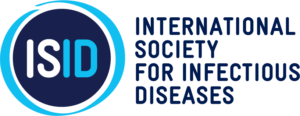July 6, World Zoonoses Day, marks Louis Pasteur’s rabies vaccine success—but today, it reminds us of a deeper truth: zoonotic diseases are rising warnings from a stressed planet. Over 60% of human pathogens are zoonotic, and 75% of emerging infections originate in animals. Some zoonoses, like rabies or anthrax, are well-known and deadly. Others, like Hepatitis E, are underestimated but globally widespread.
Spillover—when pathogens jump from animals to humans—is no longer rare and is escalating, with events tripled since the 1980s. Deforestation, wildlife trade, industrial farming, and climate change are creating new disease interfaces. Even companion animals and food systems can harbor risks. These threats hit hardest in underserved regions, where diagnostics, veterinary services, and outbreak surveillance are limited. At the same time, antibiotic overuse in animals fuels antimicrobial resistance, compounding the danger.
Industrial livestock farming doesn’t just drive zoonoses—it fuels antimicrobial resistance (AMR). The prophylactic use of antibiotics in animals leads to resistant pathogens that enter the human population through food, water, or direct contact. Without strict regulation, improved biosecurity, and universal access to diagnostics, the dual threat of zoonoses and AMR will only intensify. These are not separate crises—they are intersecting syndemics, demanding integrated solutions.
The One Health approach urges us to see the links between human, animal, and environmental health. But we need more than awareness—we need action. Zoonoses are not random; they reflect the consequences of how we treat the planet. The One Health concept acknowledges that human, animal, and environmental health are inseparably linked; turning this into action requires several measures through different areas such as: Joint surveillance systems across sectors, Genomic technologies to detect early spillovers, Cross-border data sharing and transparency, Community-led education and behaviour change, Reforms to global trade, agriculture, and wildlife governance.
On World Zoonoses Day, we must see zoonotic diseases not merely as biological phenomena but as biopolitical signals—indicators of unsustainable systems, eroded habitats, and neglected communities. Each outbreak is more than a health crisis; it is an ecological message—urgent and unheeded. The deeper we look into zoonoses, the clearer it becomes: our health depends on the health of all living things. Protecting biodiversity, strengthening equitable health systems, and promoting One Health principles are not optional—they are essential pillars of global survival. On this day, let us recommit not only to science but also to justice, sustainability, and a renewed sense of shared responsibility with the living world.
Written by ISID Emerging Leader, Gültekin Ünal.

